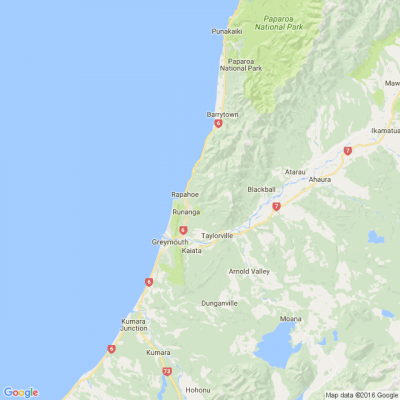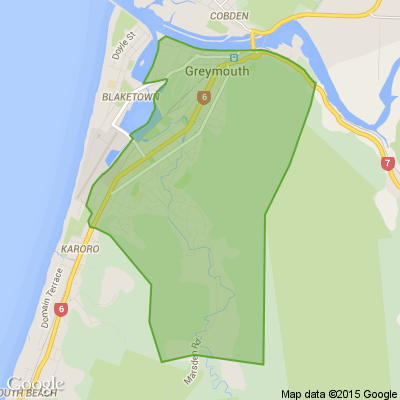No toxic algal blooms detected yet despite warmer West Coast sea
By local democracy reporter Brendon McMahon
No toxic algal blooms have been detected in shellfish off the West Coast this summer, despite the warmer ocean temperatures caused by the marine heatwave.
Long stretches of the northern West Coast shoreline were closed to shellfish gathering for much of the first half of the 2000s due to periodic algal blooms.
MetService has said surface temperatures may reach 6C higher
than normal off the West Coast this
week.
However, algal blooms have not been detected off the West Coast for about five years.
Staff at both the West Coast Regional Council and West Coast Community and Public Health said regular testing was now being conducted via MPI.
"There's no issue at this stage but they are investigating," West Coast Regional Council science team leader Jonny Horrix said.
"I guess the assumption is no news is good news."
They would act on any adverse test results showing danger to human health from consuming affected shellfish.
New Zealand Food Safety deputy director-general Vincent Arbuckle said they currently had two regular shellfish sampling sites on the West Coast — both linked to popular gathering spots.
This was where mussels were collected and tested for toxins resulting from algal blooms.
"Cape Foulwind and Twelve Mile Beach have been in operation for some time and were chosen due to their location and popularity for shellfish gathering along this stretch of coast," he said.
Testing is done fortnightly all year round and the mussels are analysed for diarrhetic shellfish toxins and paralytic shellfish toxins.
"There have been no elevated test results recently."
Arbuckle said should toxins be detected above the regulatory limit, NZ Food Safety would issue a public health warning, advising against the gathering of shellfish in the relevant area.
"Warning signs will also be erected along the affected coastline."
* Public interest journalism funded through NZ On Air
⚠️ DOGS DIE IN HOT CARS. If you love them, don't leave them. ⚠️
It's a message we share time and time again, and this year, we're calling on you to help us spread that message further.
Did you know that calls to SPCA about dogs left inside hot cars made up a whopping 11% of all welfare calls last summer? This is a completely preventable issue, and one which is causing hundreds of dogs (often loved pets) to suffer.
Here are some quick facts to share with the dog owners in your life:
👉 The temperature inside a car can heat to over 50°C in less than 15 minutes.
👉 Parking in the shade and cracking windows does little to help on a warm day. Dogs rely on panting to keep cool, which they can't do in a hot car.
👉 This puts dogs at a high risk of heatstroke - a serious condition for dogs, with a mortality rate between 39%-50%.
👉 It is an offence under the Animal Welfare Act to leave a dog in a hot vehicle if they are showing signs of heat stress. You can be fined, and prosecuted.
SPCA has created downloadable resources to help you spread the message even further. Posters, a flyer, and a social media tile can be downloaded from our website here: www.spca.nz...
We encourage you to use these - and ask your local businesses to display the posters if they can. Flyers can be kept in your car and handed out as needed.
This is a community problem, and one we cannot solve alone. Help us to prevent more tragedies this summer by sharing this post.
On behalf of the animals - thank you ❤️

Worst Xmas ever?
There's a a lot of planning that goes into Christmas day and sometimes things just don't go to plan. But it can be a good thing - a family mishap or hilarious memory that you can laugh about in Christmases to come.
Whether you burnt the dinner or were stranded at an airport...
Share your Christmas mishaps below!








 Loading…
Loading…
























